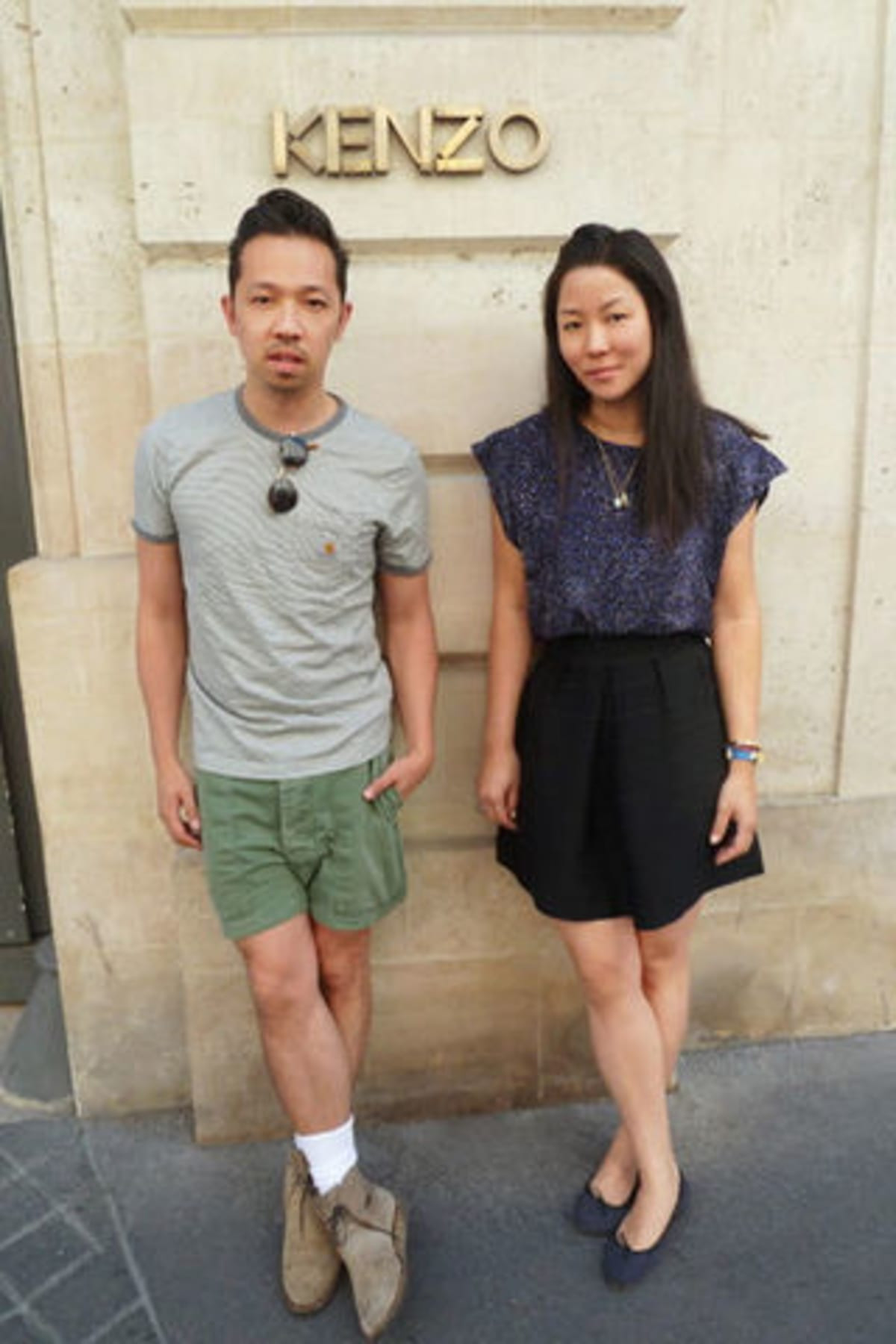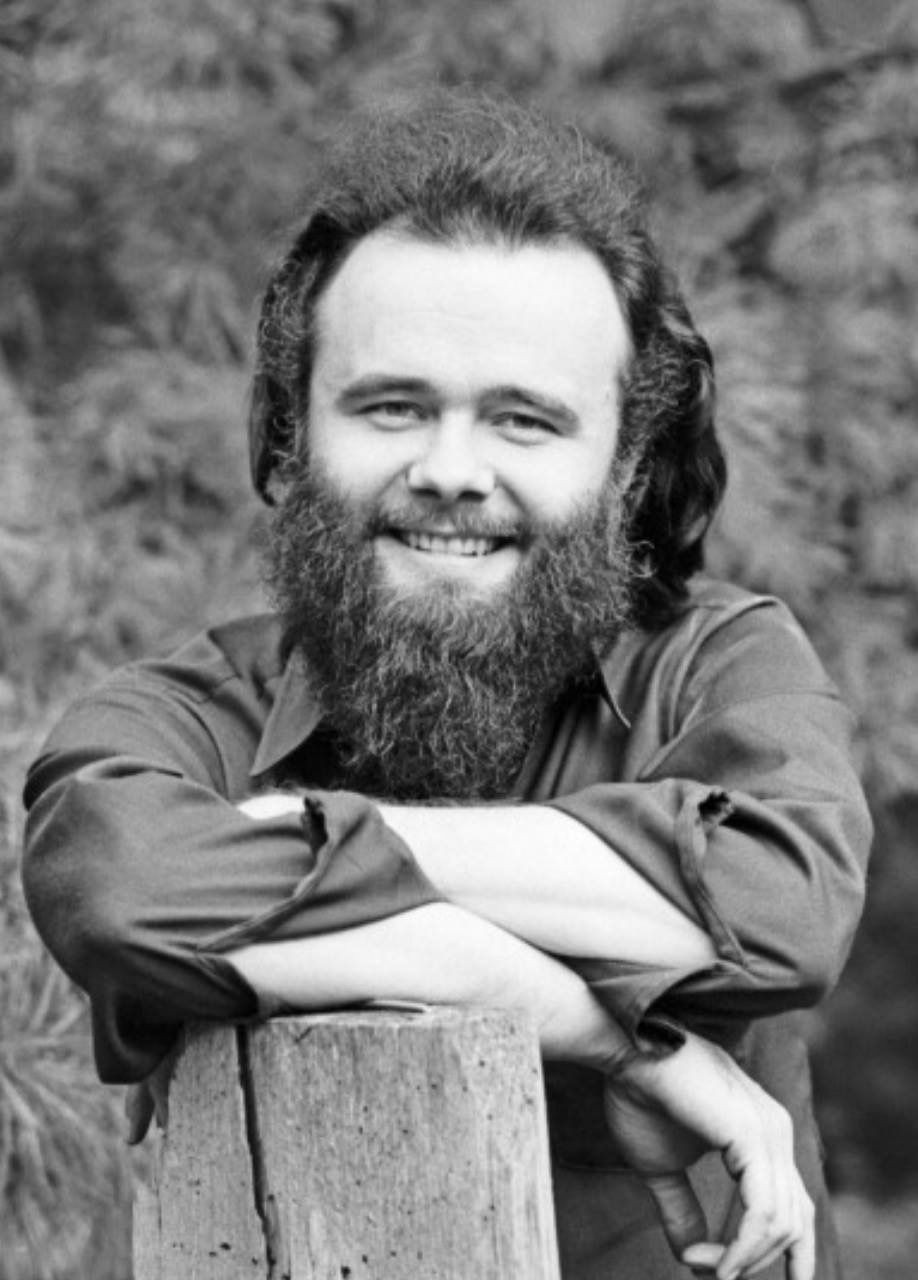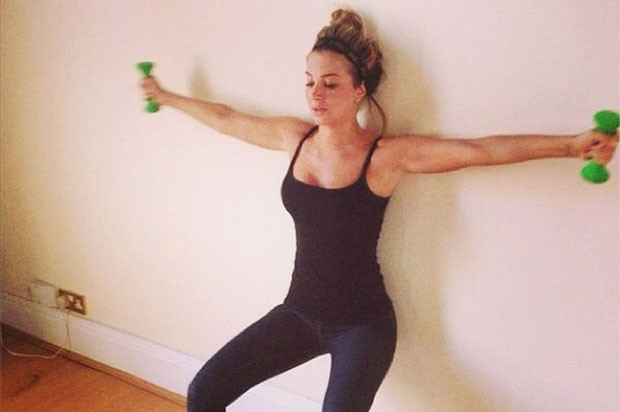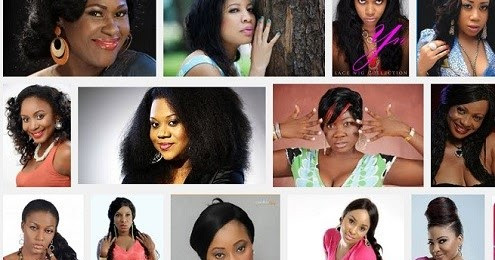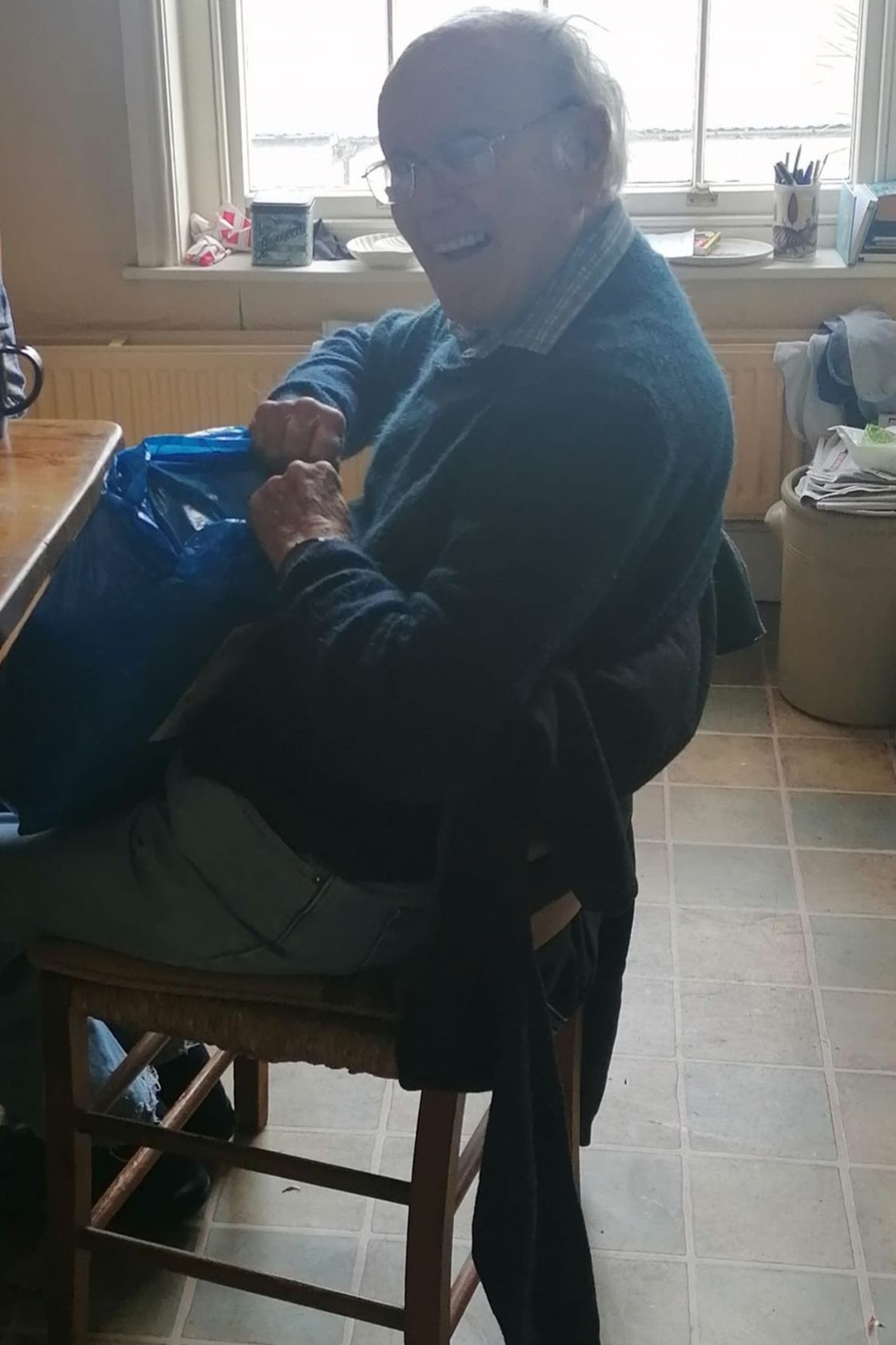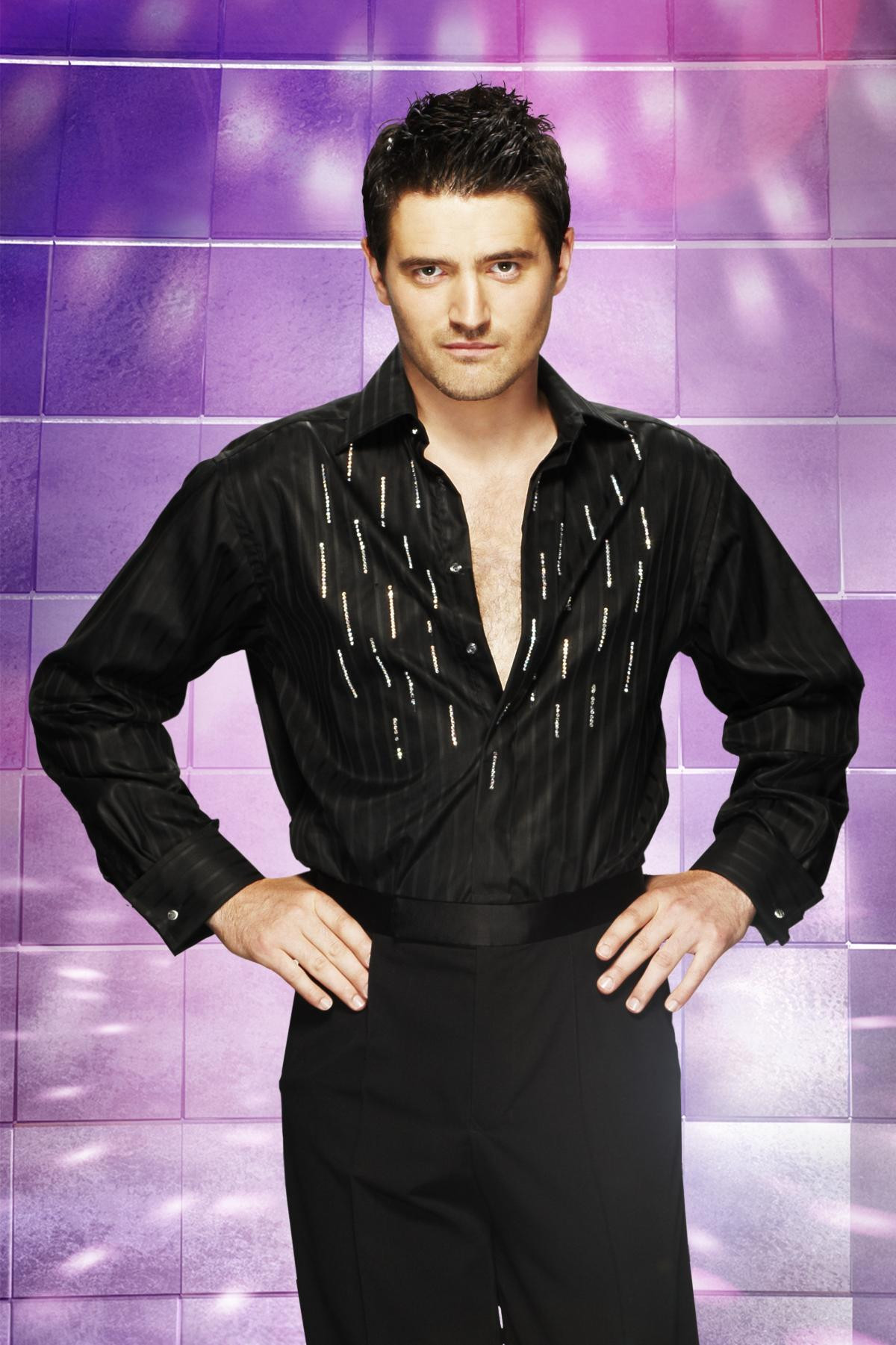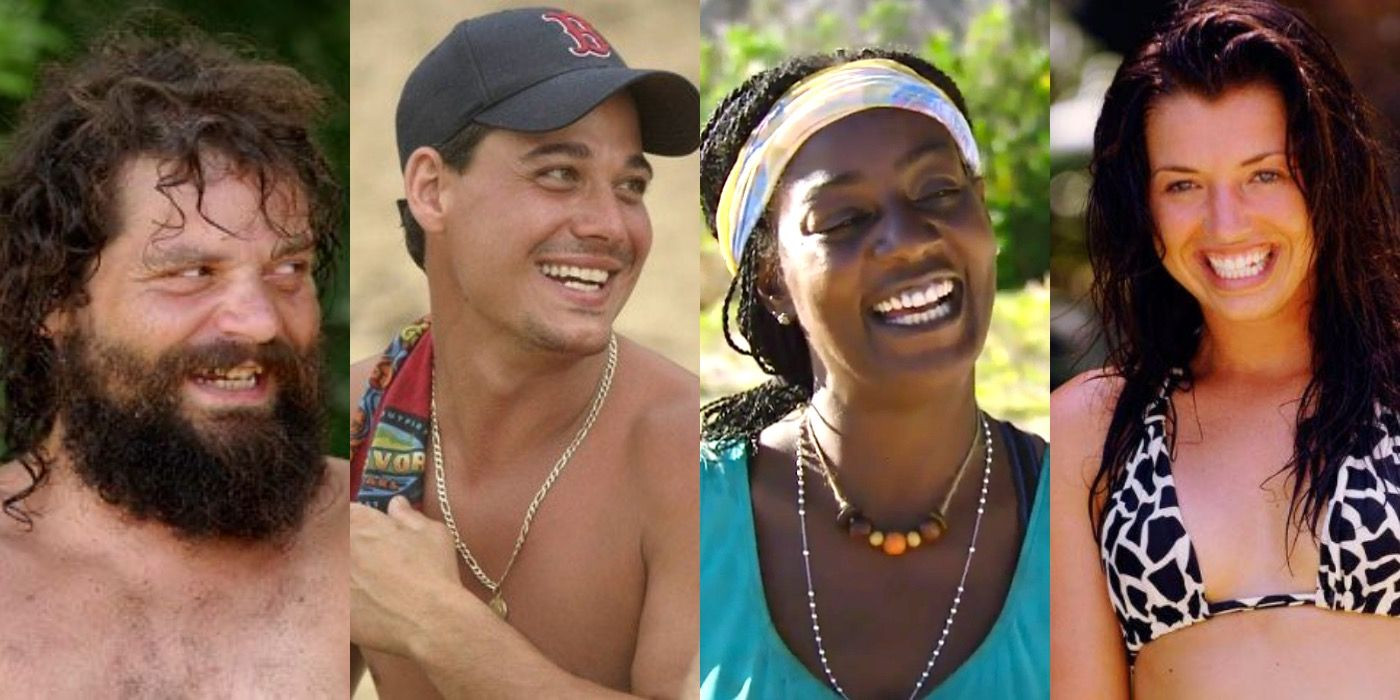Humberto Leon slinks around set wearing a faded T-shirt that says “Daddy” in bubble letters. He got it at some gay bar a while ago, and it works on multiple levels, he jokes. He is an actual father of 10-year-old twin girls. And he is also the kind of surrogate father figure of this set, of Katseye as a whole. Leon, with his Martine Rose loafers and True Religion Jeans, seems to be constantly scanning the room, walking around with his arms crossing his chest and his head slightly cocked. He snakes around the row of chairs where the girls are getting their hair and makeup done and makes slight adjustments. He is in the middle of encouraging Daniela Avanzini, a Cuban American member of Katseye, to embrace her naturally curly hair, while ensuring that her makeup brings out the golden undertones of her skin. “We’ve just been playing around because they all get bored of [their hairstyles], but this is my go-to for you,” Leon tells her in a shepherding tone.
Katseye is a global girl group powered by K-Pop entertainment giant Hybe and Geffen, born out of a YouTube competition show called “The Debut: Dream Academy,” which is the subject of a new Netflix documentary, out Aug. 21. The show brought 20 young women from around the world (out of the 120,000 who sent in submissions) to battle it out for a spot in a musical group that was destined for a K-pop level of fandom while operating in its own realm. The winners are Katseye, a group made up of Daniela Avanzini, Lara Raj, Manon Bannerman, Megan Skiendiel, Sophia Laforteza and Yoonchae Jeung, members whose cultural backgrounds span Cuban American; Indian; Ghanaian, Swiss and Italian; Cantonese with Singaporean roots; Filipina; and Korean, respectively. Their music so far — shown on their new EP, “SIS (Soft Is Strong)” — is a mix of glossy Gen Z hyper pop, plus pop and R&B, punctuated by snaps, winks and crackles. The group’s first release, aptly titled “Debut,” has an attitudinal driving pop beat with hip-hop inflections — and 4.5 million streams on Spotify. “Touch,” released this summer, is inching toward 9 million. Both of their releases have been paired with high-concept music videos, which showcase their classically rigorous K-Pop choreography training, that Leon was the creative director on.
For some, Leon’s name and work will conjure the image of a true fashion and culture insider. He is the co-founder of the decade-defining boutique and brand Opening Ceremony with longtime bestie and business partner Carol Lim. He was the co-creative director of Kenzo, also with Lim. And his current life as the co-founder of three hot L.A. restaurants — Chifa, Monarch or Arroz & Fun — still feels steeped in style, with some of their visual inspiration taken from Wong Kar-wai films. But Leon has always thought of himself as the ultimate outsider — of the fashion world, where he didn’t have any formal training or schooling, of the restaurant world, which he entered during the pandemic with his family, and now of the music industry. Leon was brought on as an evaluator and creative director to judge contestants’ performances and shape their looks at the beginning of “Dream Academy.” That turned into being responsible for Katseye’s visual language as a whole, constructing the young artists’ individual styles in a way that feels recognizable and personal while pointing to a larger story — of their cultures, of the group. Most of the job, though, calls for things that wouldn’t be as easily laid out in a LinkedIn listing.
After Yoonchae is done with hair and makeup, Leon checks in with her. At 16, Yoonchae, from South Korea, is the youngest member of the group. “You tired, Yoonchae? Do you need coffee? What do you need?” Leon coos in a knowing tone — it was an early call time today, in a couple years of early call times. Still, Yoonchae insists she’s OK. “You want a chair?” He runs to get one while Yoochae looks at a photo of the outfit she’ll be getting photographed in today. It’s a Junya Watanabe set from spring 2005 ready-to-wear— a black eyelet top and skirt with silver snap button closures that Leon worked with stylist Aly Cooper to choose. “You like your outfit?” Leon has a unique understanding of how the micro makes up the macro. His one-on-ones with the girls are punctuated by his signature giggle, and they seem to be an important part of the process.
Leon has always had a unique obsession with putting people on to what’s new, or old, or interesting, or special. The medium may change, but the story stays the same: It’s always been about discovery. “At Opening Ceremony, I always treated education as the most exciting thing,” he says. “Even with these girls, we’re giving them a crash course on fashion, fashion history and why things are important. You like this look now, but that came from this. Even for a lot of the video shoots, we’re going to archive houses. Instead of going and seeing what the [current] Y2K look is, we’re going to the archives and finding what the real stuff is.” The members, ranging in age from 16 to 22, see Leon as their fashion fairy godfather. “He developed most of my taste in fashion,” Daniela says.
We’re on the way to El Floridita in Hollywood when Daniela FaceTimes her mom from the van with no headphones. She tells her that she’s on her way to get photographed at a Cuban restaurant known for its ropa vieja and salsa nights. Daniela’s mother is Cuban and was an award-winning ballroom dancer, which is a path she would follow as well. Daniela is dressed in a fringed Margiela shirt, which reminds her of the ballroom costumes she wore as a kid — at one point going viral for her appearance on “America’s Got Talent” as a 7-year-old, when she iconically told her dancing partner, another little boy, that he needed a tan before she’d consider dating him when they grew up. She has an obviously comfortable relationship with the camera, having been a performer since she was young, and the shirt sways with every move she makes. She wonders if Leon had her ballroom background in mind when he worked with Cooper on the look. “He already gets it. He already knows exactly what to put me in,” she says.
After the pandemic, when he moved back to his hometown of L.A., Leon began to reflect on what he’d done in his 30-plus-year career and what he wanted to do next. His fashion industry resume was vast, starting his career at Gap as a teenager, when Gap was that girl, then moving to Burberry and eventually launching Opening Ceremony in 2002, which shifted the culture in early to mid-aughts New York. But anyone paying attention knew that it was never just about fashion. Opening Ceremony was about the space itself, about the people that walked through its doors, Leon reminds me, and less about the sales. For Kenzo’s spring 2018 ready-to-wear show in Paris, the biggest takeaway was that Leon and Lim had put together an all-Asian cast of models. There are moments like this throughout his career.
“I was constantly trying to tell a story about something other than fashion,” he says. “Even though fashion was my medium, it wasn’t really my art. If [I] had a museum and showed [you my] work, it wouldn’t be the clothing. I would include people. I would include discoveries. I would include memories. I would include the things that inspired me. Everything I was doing was really doing something for culture. When I was able to unlock that, I thought, ‘If I was really trying to position myself to contribute to culture, why do I have to limit myself to one medium?’”
Leon is never not creative directing. While Daniela is getting photographed at El Floridita, he gets some shots on his phone, in a Kris Jenner-, “you’re doing great sweetie”-style. At one point, he crouches down to the ground to adjust the red curtain being used as a backdrop for the shoot so that Daniela can dance to “Pasarela” by Daddy Yankee for a behind-the-scenes video his team is shooting. He is guiding a team member from Hybe on how to shoot the BTS: “Just go a little front and back, move with her and twist.” Leon reaches for his own phone to do it himself. “I push people to their limits,” he teases, his laugh quickly becoming the unofficial soundtrack of the day.
In choosing this shoot location for Manon, Leon wanted an L.A. spot that felt important for Black female performers throughout history — the fact that it was owned by a Korean woman and shared a thread with the group’s K-pop roots felt like an extra cherry. On the wall of headshots at Lili’s, there is one of a young Angela Bassett, and, Leon reminds us, Beyoncé shot part of her “Formation” video here. (He requests that whoever is manning the portable speaker play “Formation,” naturally.)
Manon, whose father is Ghanaian and mother is Swiss-Italian, has long boho braids and waist beads that she got in Ghana, which she wears with every look as a nod to her culture. “We’re a global girl group so we want to make sure that everyone can represent their heritage, where they’re from,” Manon says. “For me, I really take pride in my hair. I love to switch up my hair. I think that’s the beautiful thing about Black culture. Braids, I have locs sometimes. Humberto is always like, ‘Yeah, let’s do it.’ He’s always asking if I have new ideas. He really embraces that, which is honestly, sadly, a first for me. A lot of people, especially where I’m from, wouldn’t care as much.”
Leon got the call from Geffen because it was clear that he understood something about the subculture that is young womanhood. He grew up close to his mom and two older sisters, who infused his world with what he calls “girl energy” and shaped his taste early on. “I was both this kid who loved alternative music, but I also grew up being queer, so I couldn’t help but also love a little Kylie Minogue back then. Madonna. Also the alt girls: Alanis, Fiona, the list goes on.” (He named one of his daughters, Mazzy, after cult dream pop band Mazzy Star.) When it comes to working with Katseye, Leon says: “I feel like I can really relate to all of them.” Manon tells me that Katseye has monthly dinners with Leon where he checks in with them about how they’re feeling. “There’s some tea sometimes, you know, chit-chat,” says Manon. “We trust him a lot.”
When he came back to L.A. and was working with his family to get Chifa off the ground, an L.A. girl group called the Linda Lindas was popping off for their sleeper hit, “Racist, Sexist Boy,” and Leon invited them to come have dinner at the restaurant. While he was taking their order, he mentioned that he’d love to direct a music video for their song “Growing Up,” and pitched them a concept off the cuff. The result was a contemplation on the “beautiful sadness” of leaving home for the first time, through the perspective of the band members’ cats. “I was excited about it because I really just did it out of my own intuition,” Leon says. “They were just starting out. There was no money involved. There was no anything. It was just about doing something that felt good.”
The video got the attention of Geffen, which pitched the idea for the “Dream Academy” to Leon. “What excited me the most is that it didn’t feel like anything that had ever existed,” Leon says about creative directing the contestants, and then Katseye. “An American company, a Korean company came together to create this new project. There was this nervousness to it. I know things are good when I can feel nervous.”
On set, Manon is asking Leon if she can have her eyebrows straighter. He pulls up a picture in his phone of past days showing when they were maybe too straight: He shows why something may look better instead of just saying no. “I’m trying to analyze it so it doesn’t get back to there,” he says. Leon tells me he has a kind of photographic memory when it comes to his creative decisions. “I like to commit.” After the shoot is done, and the crew is loading up en route to the next location, I see Leon standing in the middle of Crenshaw, directing Manon in one last BTS shoot in front of Lili Wigs.
While the other members eat clouds of cotton candy Leon bought for them off a street vendor, Yoonchae poses gracefully under a gazebo featuring traditional Korean architecture. Yoonchae is in the process of learning English. The culture and atmosphere in L.A. have been wildly different from Korea, she says. “I’ve really seen her come out of her shell,” Leon says. “I think she was much more timid and comes from a different culture, and I’m very much like, ‘What do you think? How do you feel?’ I don’t know that she’s been asked that all her life. So we have a different relationship, where I get to be like, ‘I think you look so good. Do you feel good?’ And she’s like, ‘Yessss.’”
When Leon officially started the job, he requested to meet with each “Dream Academy” contestant one-on-one. The girls came in with Pinterest boards, inspo photos. “I think they were like, ‘This guy is the creative director,’ he’s going to give us advice on dressing, our hair and makeup.’ [But] I wanted to get to know them. Any information I can get about what they went through in life allows me to get to know them better, and to know what they like, what they don’t like.”
The visual language of Katseye doesn’t feel archetypal or reductive, as most girl groups throughout modern music history have — there is no one single sporty one, no one single shy one, no one single edgy one. Daniela, Lara, Manon, Megan, Sophia and Yoonchae are many things at once. They wear knee-high Tabis and vintage John Galliano and Jean Paul Gaultier. As far as inspiration goes, Leon prefers to draw from places other than the source material: If he’s working in music, he prefers not to look solely to music for his references but rather art, film and fashion. He’s taken inspiration from young Devon Aoki, early Milla Jovovich, baby rocker Shakira. “We’ve tried to embed the way the girls dress with a little bit of their background, for sure, without it being heavy-handed or tokenizing them,” says Katseye’s visual director, João Moraes, whom Leon has been working with since his Kenzo days. “Identity is an incredibly complex thing. They are not just their ethnicities or their background. They are so much more than that. But then, also, it’s an incredible platform for us to distinguish styles.”
The video for their latest single, “Touch,” is chock full of deep-cut symbolism that is individual to each member. The tone feels mystic, mysterious and surreal — a trail of context clues that takes us deeper into Katseye’s universe. Manon reads Nietzsche in one scene where the girls are lying on a vintage couch, while Lara wipes a tear from her eye while looking out a bedroom window toward a frame of a glowing moon. At the beginning, there is a shot of a newspaper whose headline announces that Yoonchae is missing. “She was last seen ‘holding her lucky shell,’” the fake copy reads. Each member has a charm, or symbol, that’s been assigned to them. Yoonchae’s is the soothing shell, which was referenced in a concept photo shoot where Leon styled her to look like Haenyeo, which in Korean translates to “sea woman” and represents the culture of South Korean female divers.
“Having intentionality and having that one-on-one conversation with them at every point for everything we do … It’s not just once. It’s every time we do anything,” Leon says. “We make sure that because there’s six unique girls from around the world, and all six are totally different, that we don’t just wash over them with one gesture.”
Sophia is wearing a Nicolas Ghesquière-era Balenciaga blouse with a camo Junya Watanabe skirt and KNWLS boots at Filipino-favorite Lasita in Chinatown. She’s been singing since she was 3 (she’s 21 now) and seems to be always on the precipice of performing, oftentimes breaking out in song or practicing a pared-down version of her choreography in the makeup chair or between shots. “I’m grateful that it was so personal,” she says about the location, being that she was born and raised in Manila. Leon is tweaking something as seemingly small as how much hair is falling in front of her shoulders versus cascading down her back while she poses above Lasita’s signature dishes: chicken inasal, vegetable atchara and garlic fried rice. But in reality, it’s not small — Sophia’s long black hair is her thing, her dream, which is something she communicated to Leon early on. “The last thing he wants to do is make us into somebody that we’re not,” she says.
Sophia explains how the entire experience, from being in “Dream Academy” to now being in the girl group, has challenged notions of who she thought she was and what she thought her look should be. There have been moments where she’s not sure of a certain outfit or hairstyle, but when she looks back, she can see that Leon has been intentionally telling a story with each beauty or fashion moment. It all clicks in context. “He’s always very much, ‘You’ll thank me later’ energy without having to say it,” she says. At one of their recent group dinners, she asked him what he’s trying to accomplish with her look. “The biggest thing now that I’m hooked on is that he said, ‘I know that you love these super elegant, very classy, very chic outfits. Especially with your performance outfits, we want to kind of break that a little bit.’ That’s why I’ll have this cute ruffle top with a bag, then I will wear a sports jacket. It brings us to another level, and it blends all of us together.”
On a brief lunch break, Leon takes the crew to a Chinese restaurant that he grew up going to where I happily eat hot, oily, spicy beef noodle soup on an 85-degree day. Leon tells me he was born in the hospital around the corner. Leon’s mother, Wendy Leon — who has been the inspiration behind Humberto’s work for years, from being in Kenzo campaigns to serving as the inspiration for the family restaurants — walked herself there in active labor from the sweatshop she was working at nearby. Leon has experience with bringing his own Peruvian-Chinese culture into his work, aspects of which he shares with Megan, who is Cantonese. “He actually really helps me a lot when it comes to my own culture and being able to embrace that and show it off,” she says. “It’s really nice to have someone that I can relate to and rely on when it comes to that.”
Megan joined “Dream Academy” when she was 16 (she’s 18 now) — a lot of this process has been about figuring out who she is, growing up in real time. The things we all go through as teenagers — from a mental health journey she’s done her best to destigmatize by actually talking about it, to her changing taste in makeup. Dramatic eyeliner has been replaced by a subtle, toned-down look under Leon’s guidance. Her hair has gone through a few color iterations, from her natural dark brown, to a deep burgundy, and now, in what has become her signature, a warm faded copper. Leon taught her that less is more. “That was a hard lesson for me to learn because I wanted to be a baddie all the time,” Megan admits. “It took maturing and a lot of growth for me to finally embrace the effortless look.”
At the shoot, Megan is posing with a wide stance — baggy Beeombi pants with a Miu Miu dress on top — on Broadway in Chinatown. “I love this outfit,” Leon tells her. She agrees. Shoppers, locals and tourists walk by her mid-shot but she doesn’t seem fazed. It’s clear throughout the shoot that Megan and Leon have a particular bond, or that he may see something of himself in her. “She’s evolving, but she always kind of knew who she was, and she has a really strong work ethic,” Leon says. “There’s this duality to her that I think is very apparent. She comes in, she has this skater boy style, and then she goes onstage, and she can turn into this intense feminine performer. It feels like she’s always kind of known herself.” All the girls have grown right before his eyes, Leon says. But if you look closely, you can see Leon’s own growth process reflected in theirs as well.
At Indian sports bar Pijja Palace, Leon is running around a table in the restaurant, moving a cup two inches back and forth until he’s satisfied. He’s shifting the flowers in the bouquet until it aligns with his internal aesthetic compass. “You’re seeing my crazy,” he tells me, giggling, as he notices me watching him do this and writing something down on my Notes app. This is all in service of Lara. In all the locations he chose for the girls, he did so because they served as vessels for a story.
For Leon, opening restaurants with his family was a reminder that energy can transfer. That he could try a new medium but that his special thing — telling stories — would always will its way to the surface. Chifa, the first restaurant his family opened in Eagle Rock, was an homage to their mother, who owned a restaurant of the same name 45 years prior in Lima, Peru. When Chifa first opened, because it was a family business and it was early in COVID years, Leon took on the role as server. Then, like now, there was a willingness to be a beginner — a preference for it, actually. It’s become Leon’s super power in a sense: entering a space not fully knowing the rules and being able to create his own. “I come from a super outsider’s point of view,” he says. “I don’t even know what it means to be in the music industry, to be quite honest, and I like keeping it that way.”
Being a solo artist was Lara’s dream since she was a toddler — she loved girl groups, of course, the Pussycat Dolls were her life — but she never thought she would be part of an ensemble. She wasn’t a dancer, and for years she was mostly focused on singing and producing. But when the opportunity to try out for “Dream Academy” arose, it felt right, Lara says, even if the dream looked different than how she thought. “The biggest thing that I’ve learned is being able to mold who I am and mold into different concepts,” Lara says. “Becoming more open and multifaceted in my artistry and the way I present myself.” Adds Leon: “Someone like Lara, I think, she came in kind of like laying it all down — like, this is what it’s all about,” remembers Leon. “She was 17 when I met her and was like, ‘This is me. This is how I am.’ But then we’ve had this amazing progression.”
At the end of a shoot day, when everyone is exhausted, hot and ready to call it, Leon and team call Katseye over to share some news: In a couple weeks, they’re going to be on “Good Morning America,” performing their new single, “Touch.” It was the scream of excitement heard around Koreatown, a chorus of energy reverberating from each one of them. There was a distinct feeling that this was the beginning of something, and where it would end up none of us could know, but it was a reminder that the chance for something new could happen at any moment.
When you’re 17, or even 49, there is a natural temptation to think that you are fully formed — that whatever you’ve done or thought you should do up until that point is what you’ll do forever. If you would’ve asked Leon at any point in his career whether he thought he’d be creative directing a global girl group, the answer would probably be no. But: “The thing that excites me the most is that it’s a learning curve for everyone,” he says. Over the last two days on this shoot, and generally over the last two years, Leon has somehow been able to draw from all of his worlds — from fashion to food and beyond — and create a completely new one for six young women. And somehow this makes the most sense of all.




